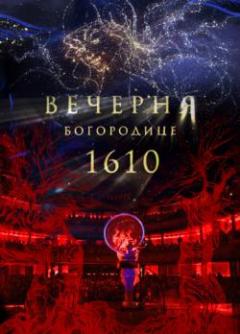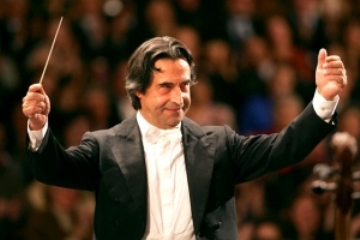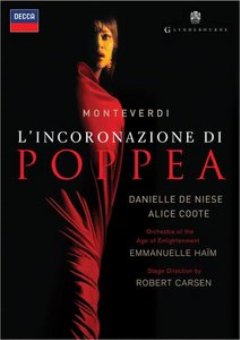Monteverdi (3)
Claudio Monteverdi
1. Vespro Della Beata Vergine 1610 (Mp4)
300 MB

Deus in adjutorium meum intende Domine ad adjuvandum me festina Dixit Dominus Nigra sum Laudate pueri Pulchra es Laetatus sum Duo Seraphim Nisi Dominus Audi coelum Lauda Jerusalem Sancta Maria, ora pro nobis Ave maris stella Magnificat Soloists: Arianna Savall - Soprano Edvige Parat - Soprano Mathilde Etienne - Soprano Florin Cezar Ouatu - Contre-tenor Hans-Jorg Mammel - Tenor Lluis Vilamajo - Tenor Luigi de Donato - Basse Nicolas Teste - Basse Ensemble La Fenice Le Choeur de Chambre de Namur Jean Tubery – conductor (2004)
The term "Vespers" (evening prayers) is taken from the Hours of the Divine Office, a set of daily prayers of the Catholic Church which have remained structurally unchanged for 1500 years. In scale, Monteverdi's Vespers was the most ambitious work of religious music before Bach. This 90-minute piece includes soloists, chorus, and orchestra and has both liturgical and extra-liturgical elements.
Vespers is composed around several Biblical texts that are traditionally used as part of the liturgy for several Marian feasts in the Roman Catholic church: the introductory Deus in adjutorium (Psalm 69), five Psalm settings, sacred motets (called “concerti”) between the Psalms, a traditional Hymn, a setting of the Magnificat text and the concluding Benedicamus Domino.
download: anonfiles yandex 4shared gett mixturecloud
2. Sonate Sancta Maria Ora Pro Nobis (Flv)
350 MB

Theater La Scala Orchestra and Choir Ricardo Muti – conductor Christmas concert 2007 Sonata sopra "Sancta Maria ora pro nobis" From "Vespro della Beate Vergine" No. 1
In 1610, dissatisfied with his work at the Gonzaga court and beset by financial difficulties, Monteverdi travelled to Rome for an audience with Pope Paul V, possibly seeking a bursary for his son. He took with him his own publication of a Mass (Missa ‘In Illo Tempore’) dedicated to Paul V; published in the same volume was a setting of the main movements of the Vespers (five psalms, a Magnificat, and the hymn, Ave maris stella) together with an additional setting of the Magnificat, an opening Toccata (adapted from his earlier opera Orfeo), and five ‘sacred concertos’ for various voices (Nigra sum, Pulchra es, Duo Seraphim, Audi cœlum and the Sonata sopra ‘Sancta Maria ora pro nobis’). It is the inclusion of these latter items that has caused considerable debate as to whether the Vespers were ever intended to be performed liturgically with all of these items included. ---Barry Creasy, choirs.org.uk
download: yandex 4shared gett mixturecloud
3. L'Incoronazione di Poppea 2008 (Mp4)
240 MB + 280 MB

Danielle de Niese (Poppea) Alice Coote (Nerone), Iestyn Davies (Ottone) Tamara Mumford (Ottavia) Paolo Battaglia (Seneca) Marie Arnet (Drusilla) Wolfgang Ablinger-Sperrhacke (Arnalta) Orchestra of the Age of Enlightenment Emmanuelle Haïm (conductor)
Director Robert Carsen's production of L'incoronazione di Poppea at the 2008 Glyndebourne Festival is a fascinating take on the opera. It's set in modern times; judging from the women's fashions, probably in Italy in the 1960s, and there are subtle suggestions of Mob culture. Carsen immediately highlights the vast difference in social standing between the emperor Nero and his queen Ottavia, and the ambitious commoner Poppea. In wonderfully parallel opening scenes, Poppea wakes up in bed with Nero, attended by the conventionally moral serving woman Arnalta, while Ottavia wakes up in a much more sumptuous, but empty bed, attended by Nutrice, here a social secretary primly attired in a business suit, but with decidedly liberal social views. In Carsen's updated version, Fortune is a carefree party girl, and Virtue is a nun. His insights into the opera's meaning and characterizations are frequently profound, but the impact is sometimes undermined by staging that's clumsily executed. The scene of the coronation, for instance, is conceptually brilliant; Poppea's cape (the gigantic rear curtain, which falls to the floor, and which she wraps around her shoulders) flows over and engulfs the crowds of citizens (and the entire stage floor) as she progresses forward toward her goal, symbolizing the lovers' indifference to the concerns of the people, or to anything at all except the pursuit of their own desires. It's impossible to ignore Carsen's awkward handling of the crowd, though. Other touches are entirely successful. Carsen has Nero murder Lucano after kissing him, because, as he notes in his commentary, something very weird happens in the music at that point that demands a dramatic disruption on-stage. Most tellingly, relying on clues in the libretto and the music, he has Nero emotionally distance himself from Poppea the closer they get to the consummation of their scheme, so that by the end of the opera, when they have finally achieved it, Poppea is left alone in silence, abandoned by Nero, finally confronted with the enormity of what she has done, and with a foreboding of its dire consequences.
Musically the performance is exceptionally lively throughout, and the individuals' singing is uniformly superb. Emmanuelle Haïm's realization of the score is flexible, spirited, and fast-paced, with wonderfully zippy, dance-like ritornellos, and the Orchestra of the Age of Enlightenment plays with energy and polish. Danielle de Niese is fabulous as Poppea, singing with a broad tonal and expressive palette, and she is a splendid actress. In her opening scene, she is so adorable and sincere in her affection for Nero that it's hard to believe Poppea is motivated by opportunism, but as the opera progresses, an ugly, ruthless side of her comes more to the fore. Alice Coote is a very fine Nero, commanding and vocally solid. Nero's character, too, develops the more we see of him, so that by the end of the opera he is revealed as a megalomaniacal monster, a scary little man with a Napoleon complex and unlimited power. Paolo Battaglia is a wonderfully resonant and authoritative Seneca, but is somewhat dramatically stiff and fails to convey a strongly individual personality. As Arnalta and Nutrice, Wolfgang Ablinger-Sperrhacke and Dominique Visse are vocally ideal for the roles and deliriously dramatically over the top. Counter tenor Iestyn Davies is convincing in the complex role of Ottone, and he sings with passion and finesse. Tamara Mumford invests Ottavia with dignity and deep feeling both musically and dramatically, and Marie Arnet is sweetly noble as Drusilla. This fine production should appeal to fans of Baroque opera, and to anyone who loves provocative and lively performances. ---Stephen Eddins, All Music Guide
download:
Zmieniony (Piątek, 03 Maj 2013 22:19)








